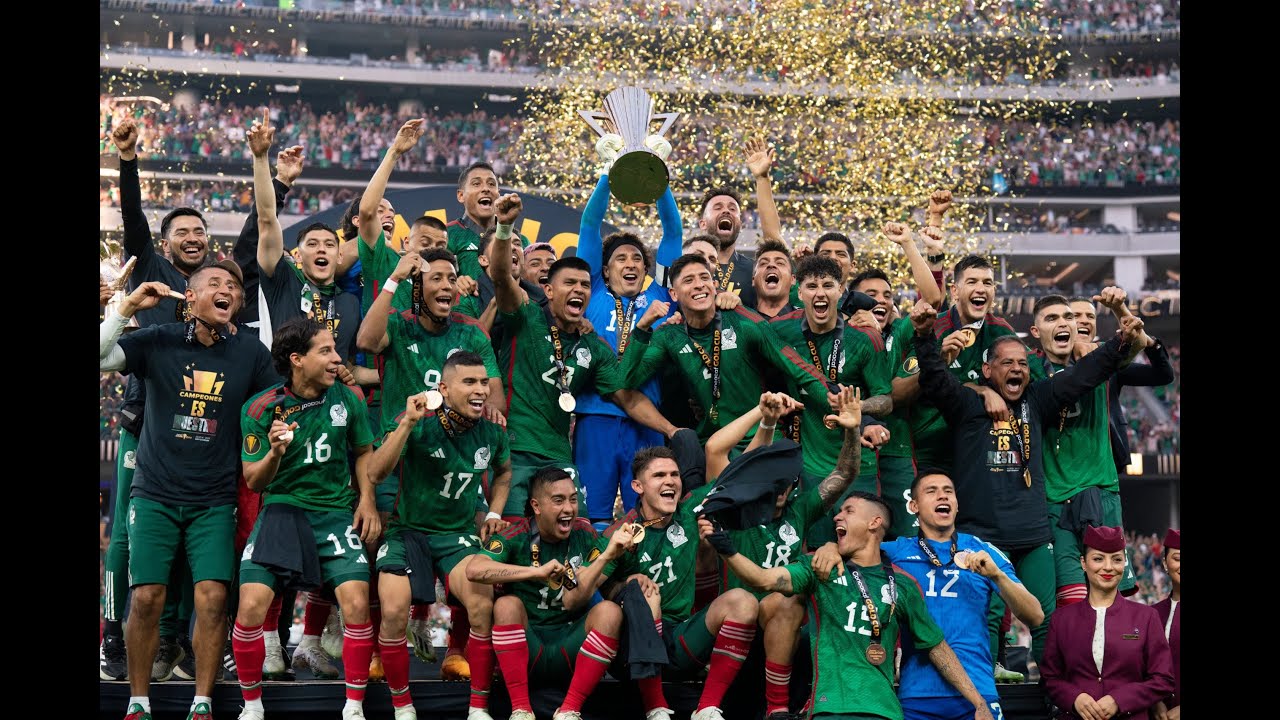For decades, the Mexican national football team, affectionately known as El Tri, has reigned supreme in the Concacaf region. Triumphs in competitions like the Concacaf Nations League and the Gold Cup have cemented their status as regional kings. Yet, beneath the celebratory confetti and gleaming trophies, a more profound challenge persistently looms: translating this regional prowess into genuine global impact, particularly on the grandest stage of them all – the FIFA World Cup.
The Weight of History and the Elusive Round of 16
The memory of the 2022 World Cup group stage exit, a stark anomaly not witnessed since their forced absence in 1990, served as a potent, if painful, reminder of this ongoing struggle. Prior to that, one would have to rewind to 1978 to find a World Cup where El Tri participated but failed to progress beyond the initial phase. However, even when they successfully navigate the group stages, Mexico encounters a rather persistent glass ceiling: the Round of 16. Since 1986, this particular hurdle has proven insurmountable, becoming a recurring motif in their World Cup narrative – a dubious streak they are now desperately eager to shatter, especially with the 2026 tournament partially hosted on home soil.
Aguirre`s Mandate: The Global Gauntlet
In the aftermath of recent disappointments, the technical bench has seen considerable movement. Javier Aguirre, now the third head coach since 2022, carries a clear mandate: to stabilize the team and, crucially, to elevate their performance beyond regional benchmarks. Like many top teams in North America, Mexico often finds that dominance within their confederation doesn`t adequately prepare them for the distinct challenges posed by the world`s elite. The solution? A strategic shift towards a more rigorous schedule of international friendlies against formidable global opponents.
This deliberate strategy explains the recent and upcoming fixtures against teams such as Japan, South Korea, Colombia, and Ecuador. These matches are not merely exhibition games; they are crucial litmus tests, designed to forge a battle-hardened squad. The intent is to expose the team to diverse tactical approaches, superior technical skill, and the relentless pressure that defines top-tier international football, thereby cultivating the resilience required for a deep World Cup run.
The Japanese Barometer: A Crucial Test
The recent encounter against Japan`s Samurai Blue, currently ranked 17th in the world, perfectly encapsulates this strategic imperative. Japan arrives with a strong pedigree and recent form, often demonstrating a blend of tactical discipline, swift transitions, and technical proficiency. Having suffered only one loss in the current calendar year and boasting an impressive unbeaten streak, they are precisely the kind of opponent Mexico needs to face.
For El Tri, such a match transcends the result itself. It serves as a vital barometer for assessing their tactical coherence, individual performance under pressure, and overall readiness. Even securing a draw against a team of Japan`s caliber would signify tangible growth for Aguirre`s evolving side, validating the strategic decision to seek out tougher competition.
Tactical Imperatives: Fortifying the Attack
The pressure on Mexico to succeed is perennial, but it has undoubtedly intensified following recent performances. While their defense, which conceded a mere three goals during the Gold Cup, has showcased impressive solidity and leadership, a critical question mark hovers over the attacking third. Raul Jimenez, while a proven goal-scorer, cannot be the sole provider of offensive inspiration.
For Mexico to genuinely challenge the best defenses globally, other players must step up and contribute consistently to the attack. The ability to create multiple goal-scoring opportunities, exhibit clinical finishing, and maintain offensive dynamism throughout 90 minutes will be paramount. Matches against world-class opponents like Japan relentlessly expose these areas for improvement, providing invaluable data for the coaching staff.
The Road to 2026: A Defining Era
As the 2026 World Cup approaches, Mexico finds itself at a pivotal juncture. Hosting the tournament offers an unparalleled opportunity to finally break free from historical constraints and redefine their legacy. The preparatory journey, marked by challenging international fixtures and ongoing tactical adjustments, is crucial. It’s a marathon, not a sprint, where every pass, every tackle, and every strategic decision contributes to the broader objective.
The expectation is clear: regional dominance is no longer enough. The faithful demand not just participation, but progression, a deep run that reflects their passion and the undeniable talent within the squad. With Javier Aguirre at the helm, and a clear vision for global engagement, El Tri is actively charting a course to ensure that when the world turns its eyes to North America in 2026, they are not merely hosts, but genuine contenders.

